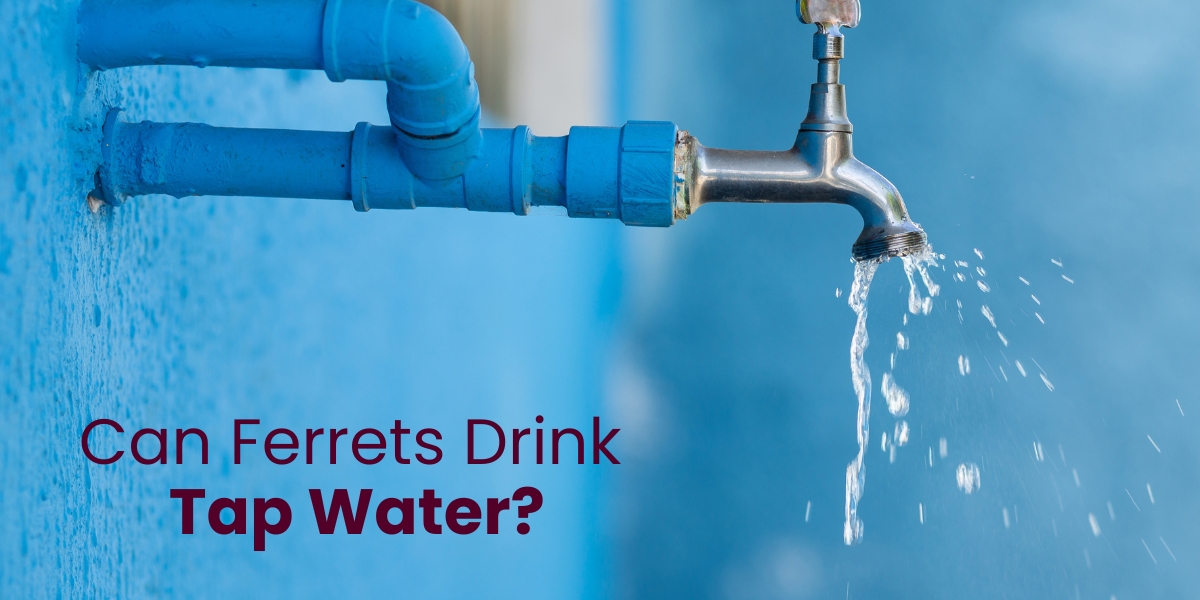If you’re a proud ferret owner, you know that these energetic, curious little creatures have specific needs to keep them healthy and lively. Among those needs, hydration plays a paramount role. But the question many ferret owners grapple with is: Can ferrets drink tap water?
Picture this: you’ve just come back from a long day out, and as your ferret plays around energetically, you wonder if the tap water you’re about to pour into its bowl is the best option. It’s as if every drop is reminiscent of a page from a mystery novel – harmless or a hidden foe?
Understanding Ferret’s Hydration Needs
Ferrets are active animals. Just like us, their body weight largely consists of water. Therefore, ensuring they drink a lot and stay hydrated is vital. But how much is ‘a lot’? Let’s break it down:
- Water Bowls vs. Water Bottles: A water bowl or water bottle? Which one is right for your ferret? Both have their pros and cons. Bowls are more natural for ferrets to drink from, mimicking how they’d drink in the wild. However, water bottles help in keeping the water clean, preventing any playful splashes or accidental tips.
- How Much Water? On average, a ferret drinks about 75-100 ml of water every day. That’s nearly 20 times their body weight in a month! Incredible, right? Remember, this amount can vary based on their diet, activity level, and the environment.
The Tap Water Debate
When ferret owners ask, “Can ferrets drink tap water?” The answer isn’t a straightforward ‘yes’ or ‘no’. Here’s why:
- What’s in Your Tap? Not all tap water is the same. Depending on your locality, tap water might contain varying levels of minerals, chlorine, and other additives. Some of these can be harmful to your ferret’s health.
- Filtered Water vs. Tap Water: Filtered water, whether from a pitcher or a fridge, usually removes many of the contaminants found in regular tap water. This makes it a safer option for your ferret to drink.
- Spring Water – A Natural Alternative: Some ferret owners opt for bottled spring water. It’s considered natural and doesn’t have the chemicals typically found in tap water. However, ensure you’re choosing a reputable brand.
Tips for Hydration
Keeping your ferret hydrated is more than just about the source of the water. Here’s a quick list to keep in mind:
- Check the Water Regularly: Ferrets are playful beings. Ensure the ferret’s water source, whether a bowl or bottle, is clean and free of contaminants.
- Monitor Their Intake: Like humans, if ferrets drink a massive amount of water suddenly, it might indicate a health issue. It’s essential to be observant.
- Avoiding Dehydration: It’s crucial for ferrets to avoid drinking too little. Sunken eyes, lethargy, and thick saliva. If you suspect your ferret is dehydrated, consult a vet immediately.
Wrapping Up
So, can ferrets drink tap water? The answer largely depends on the quality of your tap water. If it’s free from harmful chemicals, it can be a suitable choice. However, to be on the safe side, consider filtered water or spring water as better alternatives.
Remember, the health and happiness of your ferret depend on the choices you make. As with anything in life, it’s always better to be safe than sorry. After all, isn’t it a small price to pay for the joy and laughter these adorable creatures bring into our lives?
Fun Fact: Did you know that when a ferret plays, they can sometimes forget to drink? Just another reason to keep a watchful eye on their drinking habits!
FAQs
While the article provides general guidance on tap water for ferrets, the water’s safety can depend on local water quality and the age or health of the ferret. It’s always best to consult with a veterinarian specific to your ferret’s needs.
To ensure your tap water’s safety, you can have it tested for harmful chemicals, minerals, and other contaminants. Many local governments or utilities provide water quality reports. If concerned, consider using a water filter or opting for spring water.
Regularly clean and refill your ferret’s water bowl to minimize contamination risks. Ensure the bowl is placed in a location where it’s less likely to be contaminated by play or other factors. Also, consider the bowl’s material; ceramic or stainless steel tends to be best.
Yes. If your ferret starts showing signs of discomfort, such as avoiding their water, gastrointestinal issues, lethargy, or any sudden changes in behavior after drinking, it could be a sign that the water isn’t suitable. In such cases, consult a veterinarian immediately.
If your ferret has been drinking tap water without any problems, it might indicate that your local tap water is of good quality. However, as water quality can change over time, it’s a good idea to periodically review local water reports or consider filtering as an extra precaution.

